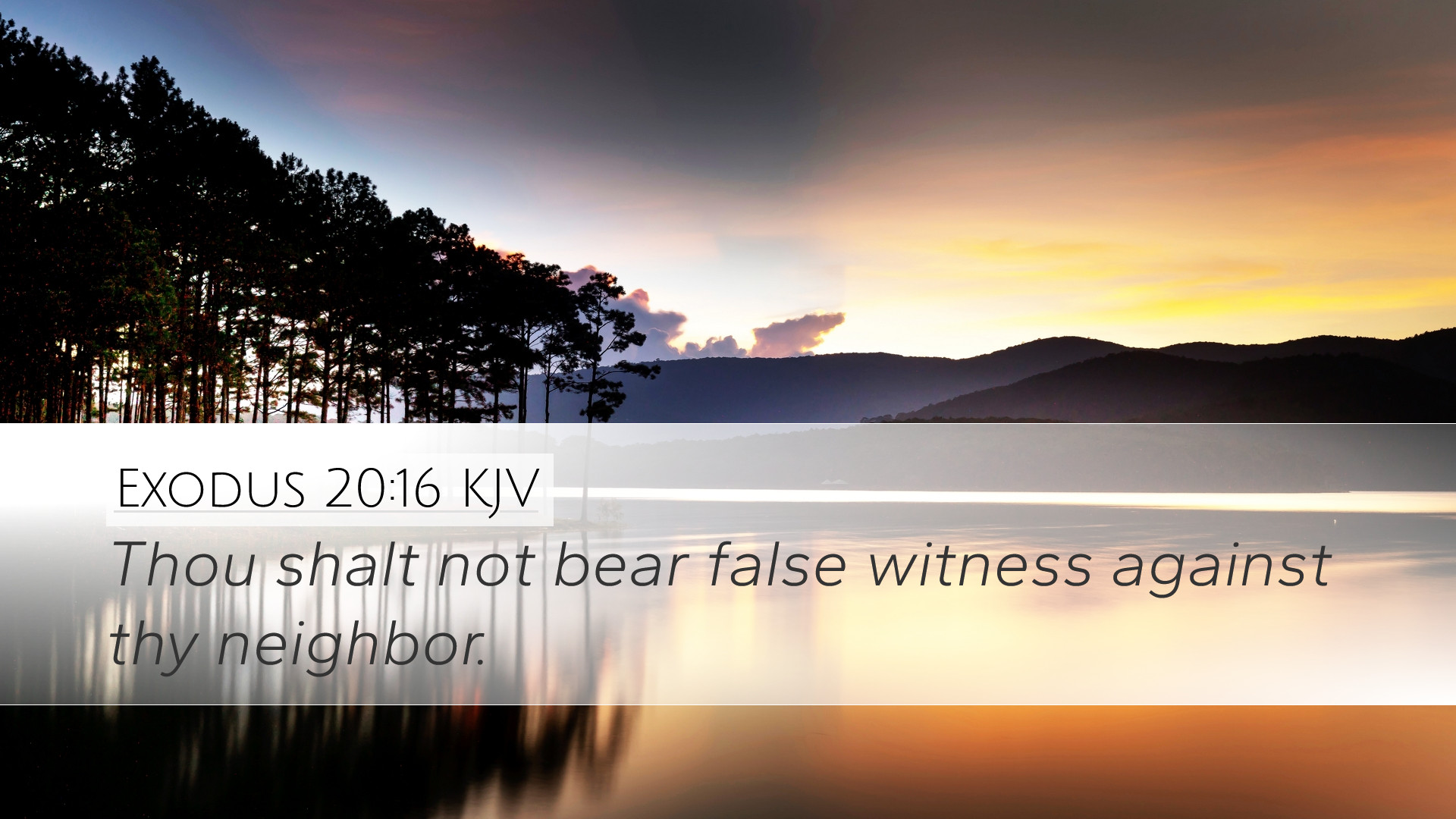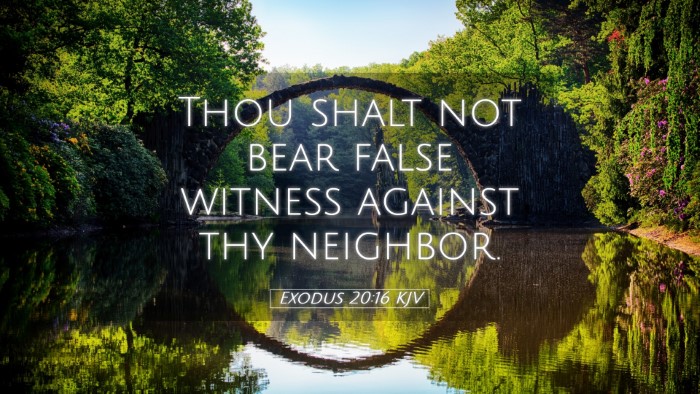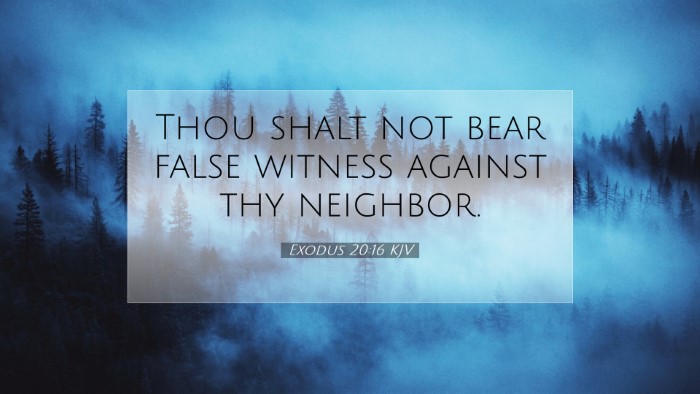Commentary on Exodus 20:16
Exodus 20:16: "You shall not bear false witness against your neighbor."
Introduction
This commandment, foundational to both individual integrity and communal harmony, calls upon believers to uphold the truth while fostering an environment of trust and respect within the community. The implications of this command span ethical, social, and spiritual dimensions, making it essential for pastors, students of theology, and biblical scholars to explore its depth.
The Nature of the Command
In this commandment, there is a clear prohibition against false testimony. The term "false witness" implies not only the act of lying but extends to any deceit that could harm the reputation or integrity of another. Matthew Henry notes that this command serves not only as a legal injunction but also as a moral directive that shapes the fabric of social life within Israel.
The Purpose Behind the Command
Albert Barnes posits that the intention behind prohibiting false witness can be rooted in the nature of God, who is truth itself. This appeal is particularly relevant as it aims to preserve community cohesion and justice. In ancient Israel, where communal relationships were paramount, bearing false witness could lead to severe consequences, both judicially and socially.
Integrity and Justice
The covenant community was to reflect God’s justice and holiness. Adam Clarke emphasizes that justice would become impaired if individuals could freely lie about one another. The integrity of the judicial process relied heavily upon the honesty of witnesses, thus making this command critical not only for personal conduct but also for societal health.
The Broader Implications
This command extends beyond mere courtroom behavior; it highlights the importance of truthfulness in all aspects of life. In his commentary, Matthew Henry suggests that the prohibition of false witness reflects a comprehensive call to honesty. This includes not only what one says but also what one believes and how one behaves toward others.
Social Harmony
False testimony does not merely affect legal standing but can disrupt relationships and community unity as a whole. Barnes argues that the breakdown of trust resulting from dishonesty can lead to widespread social unrest. The community must cultivate an environment where truth is valued and where individuals can rely on one another's word as a reflection of God’s truth.
Applications for Believers
For contemporary believers, this commandment offers rich applications. It reminds Christians to consider the weight of their words and the seriousness of misrepresenting others.
Personal Conduct
- Self-Examination: Individuals are called to introspect on their own speech and the truthfulness of their statements concerning others.
- Building Trust: This command challenges believers to cultivate relationships based on honesty and trust, thereby creating a reflection of God’s character.
- Redemptive Conversations: Advocating for truth in a way that builds others up rather than tearing them down can promote healing and reconciliation.
Societal Impact
In broader societal contexts, the implications of this commandment question the norms of speech that prevail. Adam Clarke asserts that a society that cannot trust its members will inevitably face turmoil. The call to not bear false witness becomes a prophetic challenge to the culture of dishonesty that often pervades public discourse.
Conclusion
Exodus 20:16 serves as a timeless admonition that continues to speak to the heart of human interaction. As communities navigate the complexities of trust, integrity, and justice, this commandment urges a return to the fundamental truth that God desires for His people.
In summary, the command against false witness is not just a legal stipulation but an ethical directive that reflects God's nature and His desire for His people to live in truth. Pastors, theologians, and believers alike are called to embody and promote these values—upholding truth not only in words but in actions, thereby fostering a community that mirrors the character of Christ.


